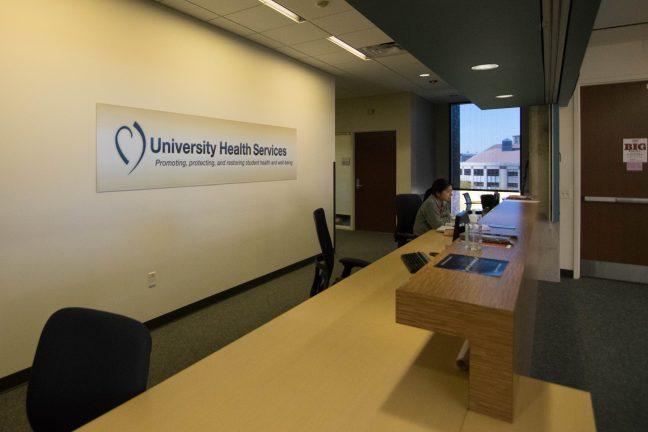Human coronavirus, abbreviated COVID-19, shocked people in Madison, including Asian Americans, last week when UHS announced it touched down in Madison last Wednesday.
While I do love receiving a random blast email from my favorite clinic on campus every now and then—seeing this message in particular raised some serious concerns. As much as I love this campus’s sense of humor, I knew the jokes about this event might get uncomfortable fast.
Jokes about COVID-19 have been circulating ever since news of its arrival in Wuhan broke, and its growing intensity has brought it to the forefront of many conversations, serious and lighthearted in nature.
I want to say upfront, I believe humor is one of the best ways to deal with a crisis. Making fun of something serious gives difficult issues just the right amount of attention — people aren’t forgetting about it, but they’re also not obsessed with worrying about it, either.
Humor makes COVID-19 less of a monster, I understand that. Regardless, people need to realize these seemingly-harmless comments lay on a spectrum of cultural insensitivity, and it’s the people this virus affected first who get to decide where any one of those quips lie.
Senior Cynthia Liu illustrates the tough position people have found themselves in at a recent encounter at Fresh Market. A person went up to her and asked if she hailed from China. When she responded she didn’t but her family did, she got a less-than amicable response.
“He said, ‘Good, because if you are I’m getting the [profanity] away from you,’” Liu recalled. “[Then], he looked at the other Asian girl near me who witnessed the incident and let out this little scream and ran away from both of us.”
At the time, while Liu felt surprised by the display of ignorance, she also couldn’t help but notice the lack of upstanding from students around her who watched the whole interaction take place.
“I think the two of us were both in shock, since that was very blatantly racist, but also that none of the non-Asian students near us did anything to defend us,” Liu said.
In a similar situation, sophomore Catherine Ge saw herself dealing with the same prejudice in a computer science lecture.
“I sat down in the middle of a row in [a lecture hall] … I blew my nose because it was cold outside, and this guy sitting right in front of me looked back at me, whispered something to his friend, and they moved left to the end of their row and sat there for the rest of the lecture,” Ge said.
Fellow sophomore LiHai Wilkins recounted the same thing happening to her Asian roommate.
“[My roommate] sneezed, and the people in front of her looked back, whispered to each other and then moved down the row,” Wilkins said.
Finally, according to freshman Sophia Davenport, the alleged fear of COVID-19 has also worked its way into discriminating Asian businesses, as well as Asian students.
“I was walking past A8 China on University avenue and some guys behind me were talking. One of them said, ‘that place is really good,’ then the other one said, ‘but we can’t eat there now because of the coronavirus,’” Davenport said.
All of these instances show what happens when people let a piece of shared knowledge grow into a harmful illusory correlation that perpetuates the idea a race is connected to something it’s not. Tying a disease to a minority race not only spreads further ignorance, but it carries the danger of alienating students who sometimes already feel out of place on this campus.
In senior Cynthia Liu’s interview, Liu cleared up one of the biggest misconceptions about Asian students wearing masks on campus.
“East Asians wear masks because culturally, whether you’re trying to avoid getting sick or are sick, you wear a mask to respect those around you,” Liu said. “Somehow that’s been interpreted as ‘East Asians are the only ones being affected,’ or ‘they’re sick so I should stay away from them.’ All of us are being affected and this virus knows no race or ethnicity, so don’t label it as the ‘Chinese virus.’ It’s a virus, plain and simple.”
Liu added it’s more important to form a united front against this public health crisis instead of turning on others you think might have it.
“It’s important to be there for one another, no matter what country, economic background or ethnicity you identify with, especially when these trying times affect everyone,” Liu said.
Moral of the story, COVID-19 is not an excuse to discriminate against Asian-American students. I am aware the people in the majority of these instances never intended to hurt someone’s feelings, but we should all still be conscious of our actions — there’s no telling how you will affect the person on your receiving end.
Katie Hardie (khardie@wisc.edu) is a freshman studying nursing.


